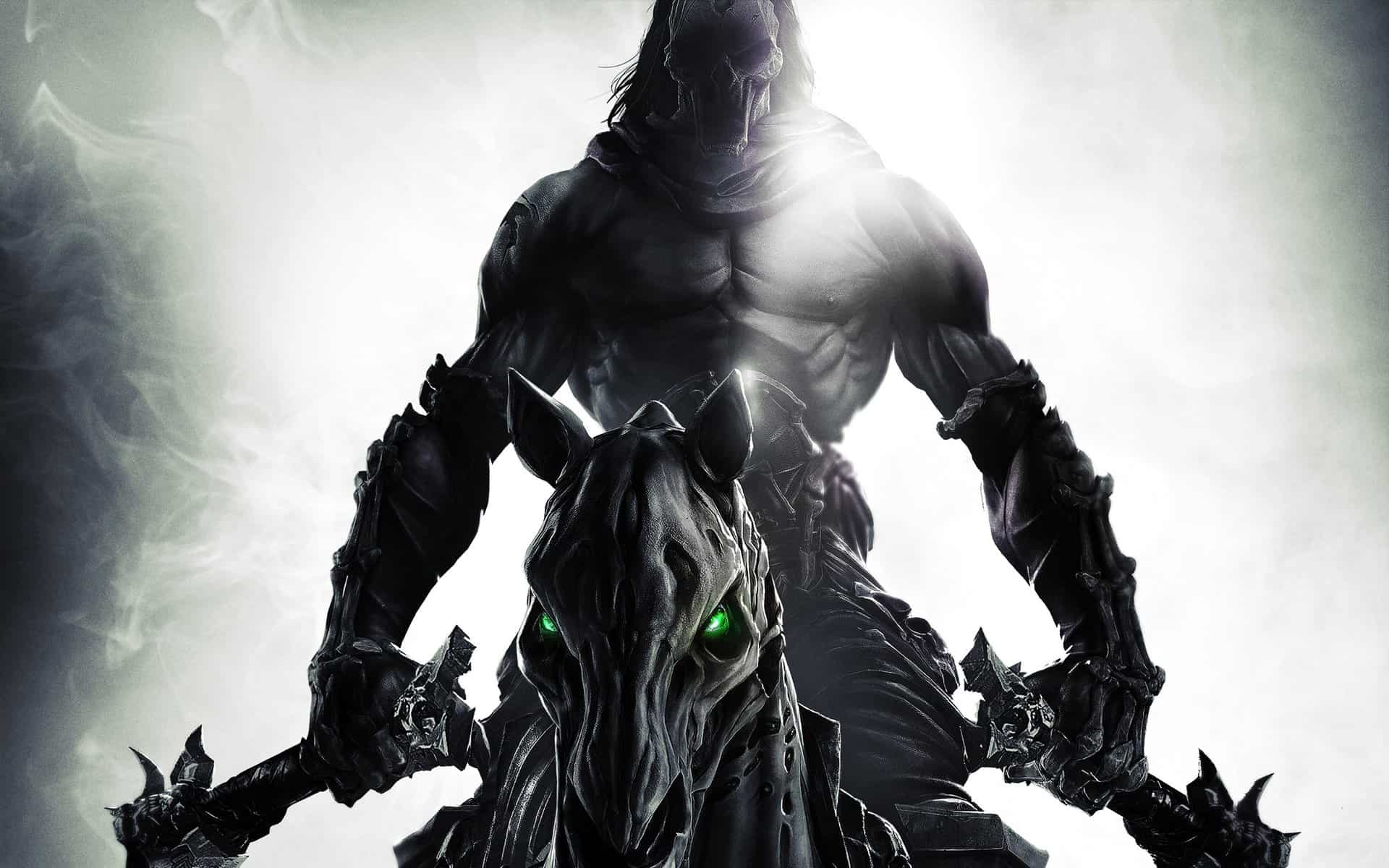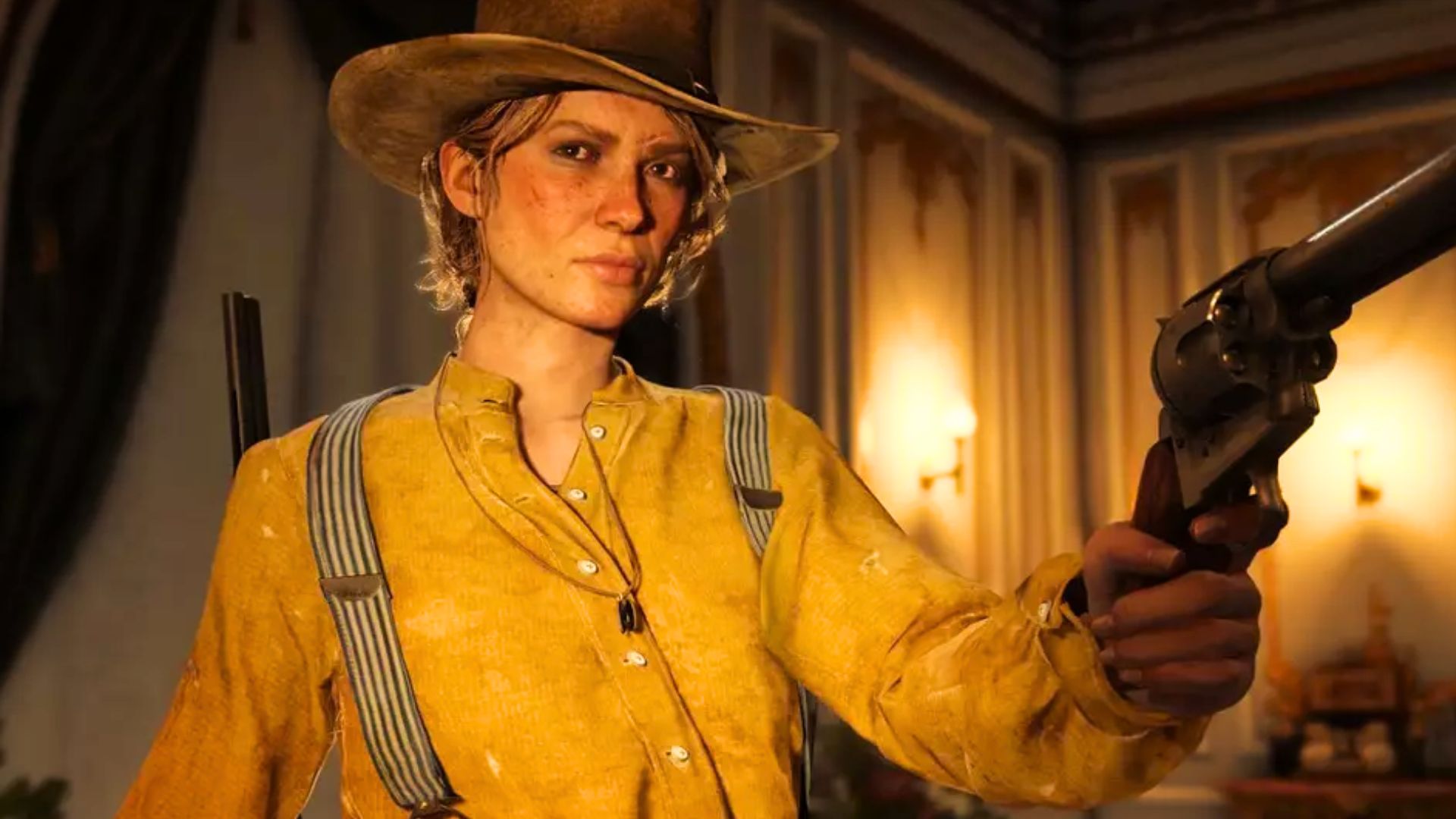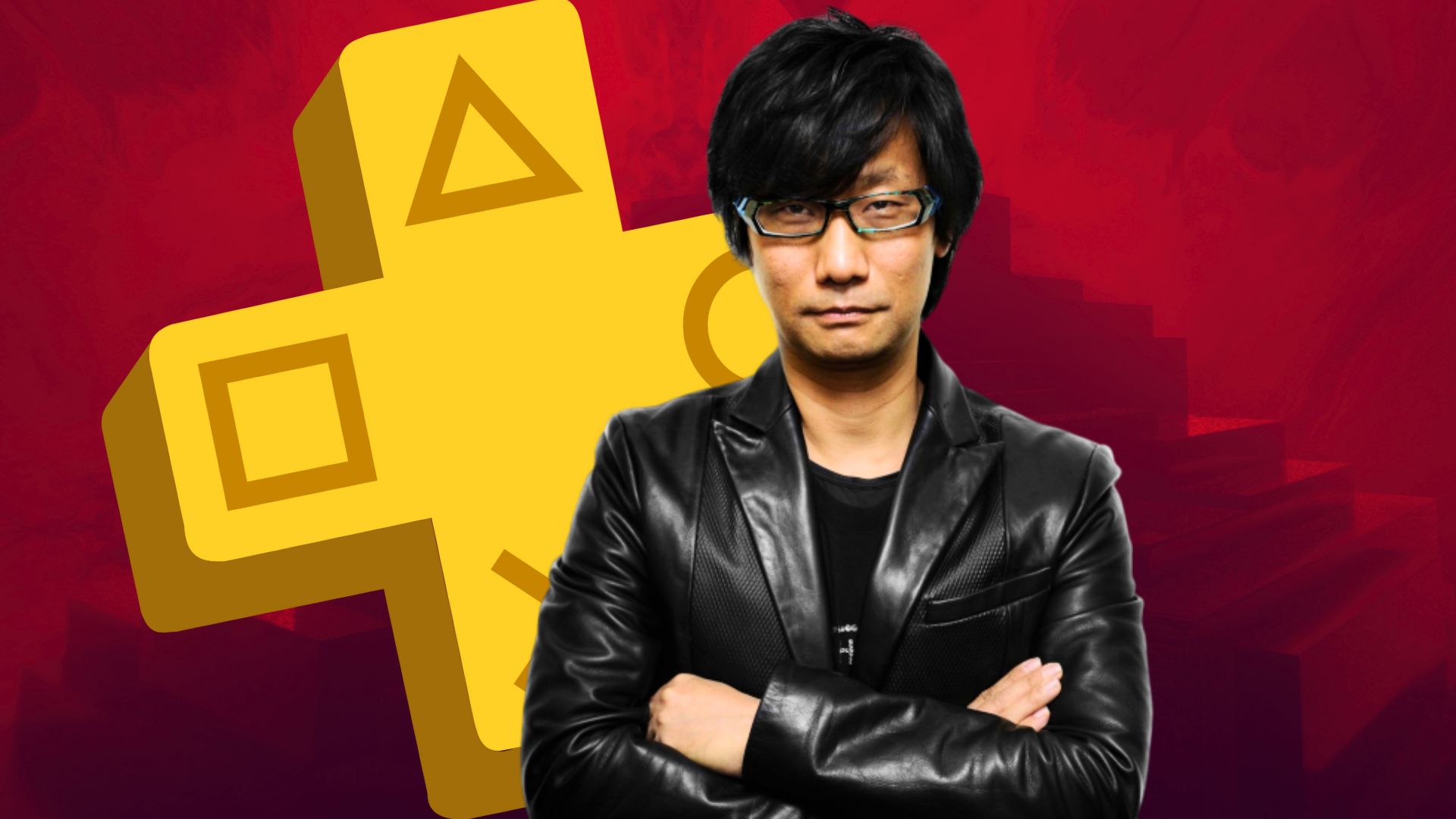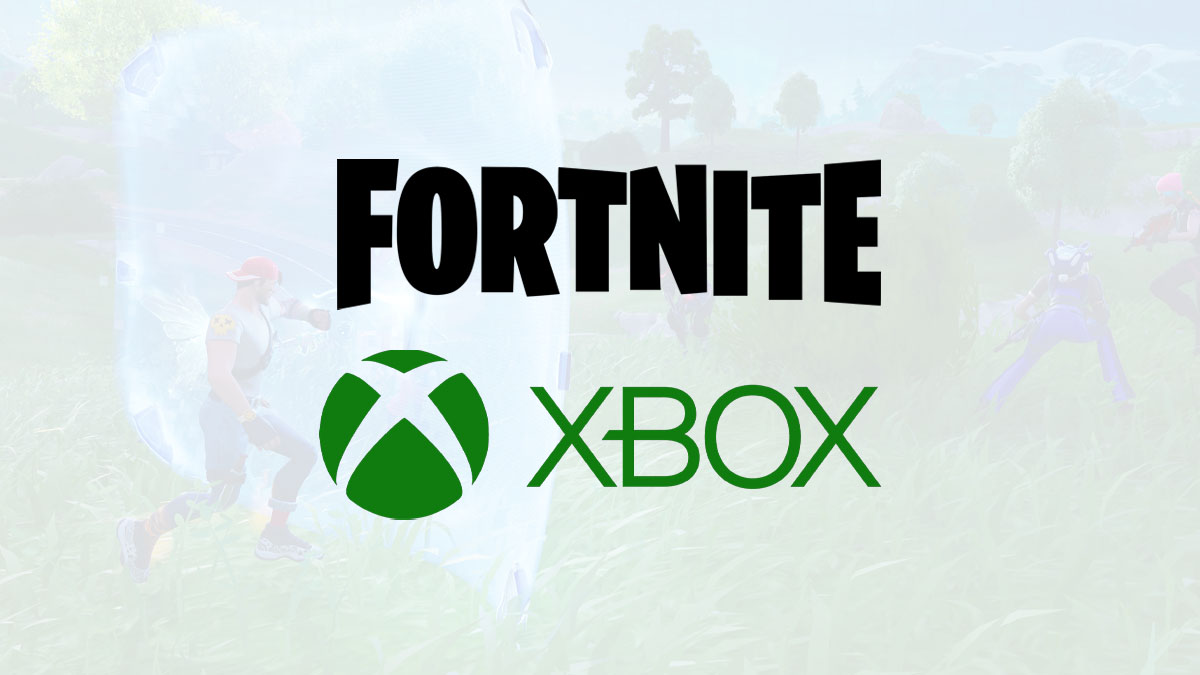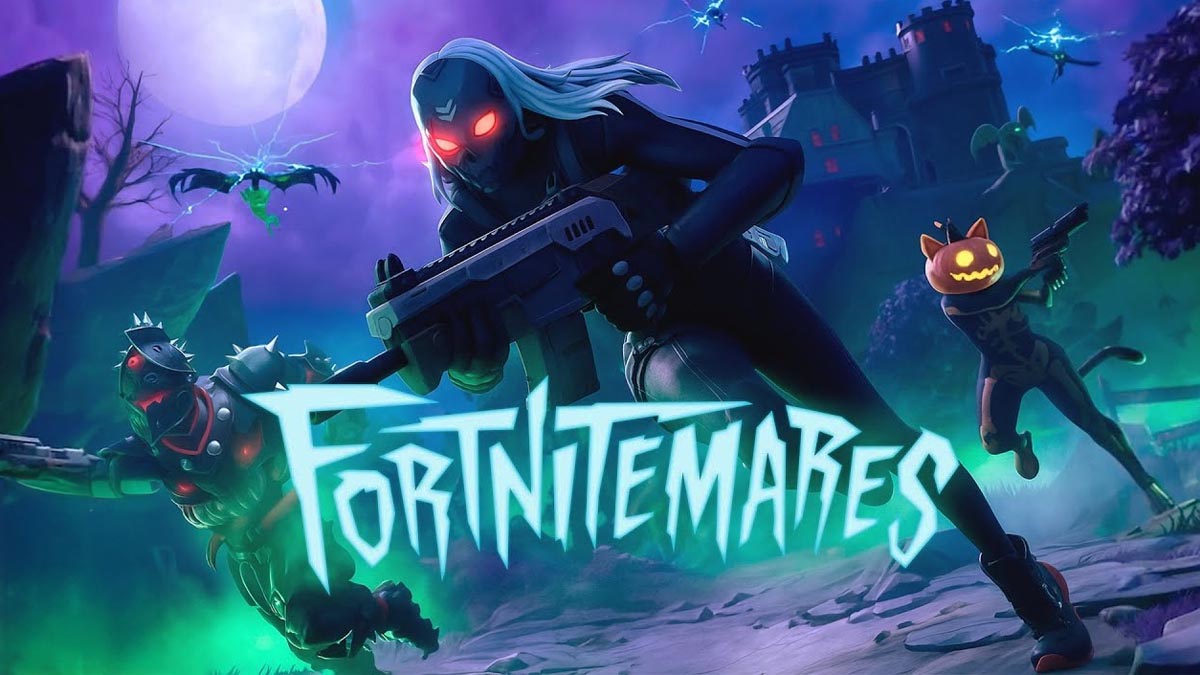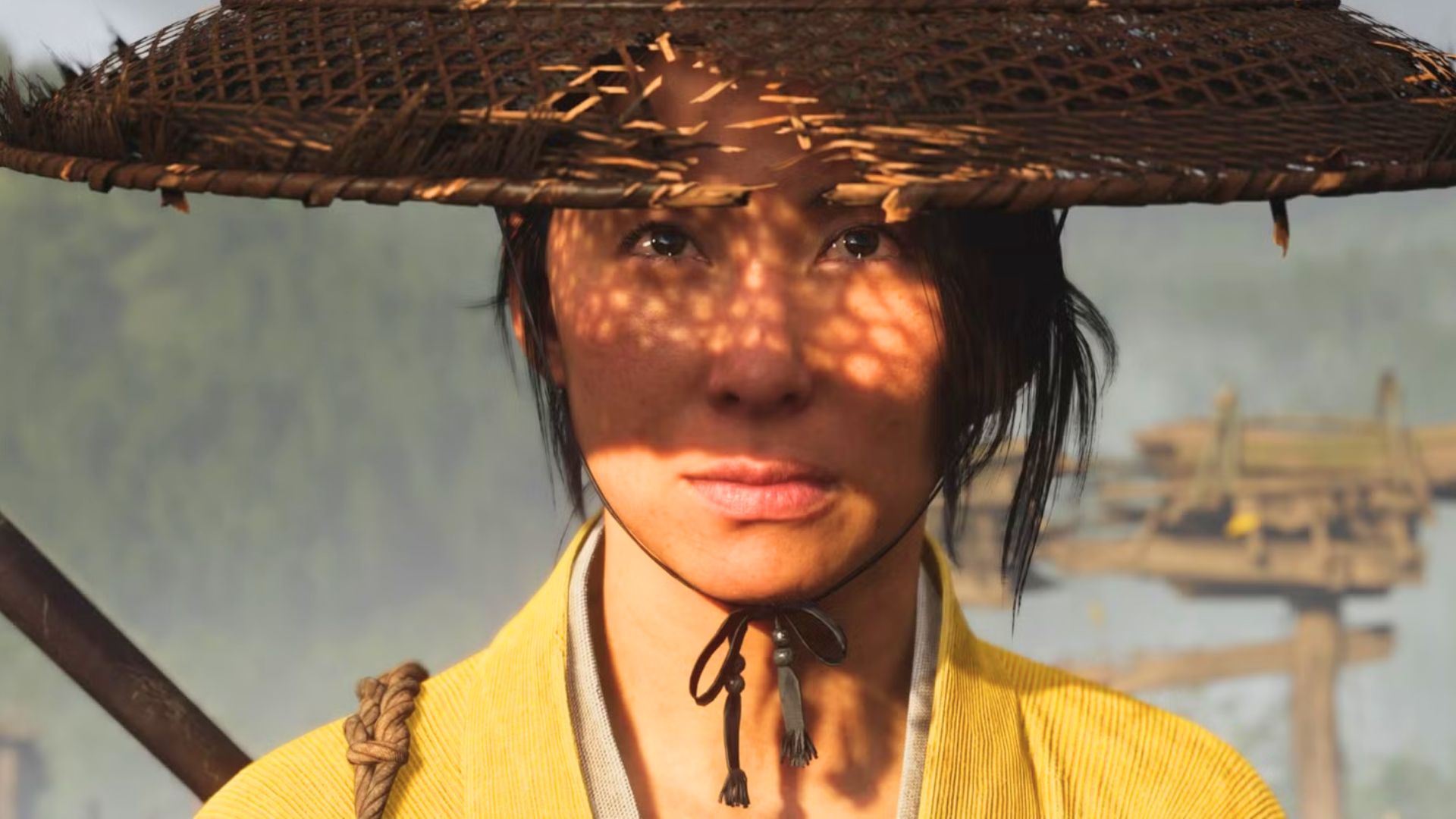You can trust VideoGamer. Our team of gaming experts spend hours testing and reviewing the latest games, to ensure you're reading the most comprehensive guide possible. Rest assured, all imagery and advice is unique and original. Check out how we test and review games here
VideoGamer.com: I felt that the original Darksiders had a great vision but that it was a little rough around the edges, and that it could have done another few months to refine it. You’ve been granted that extra time with Darksiders 2. Has that made an impact on the overall game?
Haydn Dalton: Absolutely. That’s the most crucial stage of the project. I always see it as sculpting from a block of clay. You have an idea in your head of what you want to do and what your team wants to do. Then you start to chip away and you get to a part where you’ve got the shape and understand how it all works, but the perfection and the beauty and the awesomeness of it is shaving the little bits off that don’t need to be there and getting rid of those small, rough edges. You can only get there by seeing the whole thing and being able to appreciate what you need to take away.
When we approached THQ about needing a little more time – even though we’d already been given a time slot – it was at a point when we could see the product and we could see where we needed to refine it. Thankfully they gave us that time. Obviously, with the position that THQ was in it was a big, bold move for them to hold back on the product knowing that they could sustain a few more months before it came out. It was great of them and I think, yeah, if you’d have seen it a few months ago, just looking at it you’d probably be thinking, ‘Well, it hasn’t changed that much’, but when you actually would have played it you would have seen we’d spent a lot of time balancing the gear items and skills, and doing more with the controls. It’s a lot of the stuff that you don’t instantly see, it’s what you feel, and that’s the important part that we didn’t have on the first one. We were a ragtag team of guys trying to punch out at a higher weight than where we were at. But I thought for our first game we did a great job.
We’re still proud of DS1 – very much so – but we know there was definitely things that we’d have liked to fix. Even on [Darksiders II], even though it’s a great game, we’re happy with it, there’s still things where we could sit back and go, ‘I wish we could have done with a bit more time with this’.
Q: I’ve interviewed a lot of developers who have said that a game is never finished.
HD: Yeah, it’s never completed. That’s true. That’s definitely true.
Q: I’ve played about an hour of the game today, but I’ve already noticed multiple elements from other great games. There are aspects of God of War in there, and Zelda and Prince of Persia. How do you balance the different mechanics? What’s the focus?
HD: The first thing you’ve got to get right is the feeling of the game, and a lot of that stems from combat because in most cases the combat fuels you to get to the locations. Getting the controls and the combat right is important. But the heart and soul of Darksiders 1 was the level design and the puzzles, so that was a big component that we had to think of; adding new elements to keep that interesting but also challenging enough so players will have some sort of mental problem-solving. And that’s always a problem, because you can get to stages where, even though the answers are right there, some players just don’t get it instantly.
It’s a real risk because you could stop someone from playing the game because they’re so frustrated that they don’t understand. Even though we’ve put lots of indicators in there and we usually train the player up on certain items, and you do all the things that you think you’re doing right, sometimes people might have just been looking another way when a particular thing happened, and you’re like, ‘Oh God,’ and then they’ve lost it for two hours and get really frustrated. So doing anything essentially based around the player solving an equation – taking A and B and they’ve got to find C – that is a problem.
We spend a lot of time testing that on ourselves. One thing we’ve always said to the designers is play it with fresh eyes. That’s a big thing when I play a level. I always come in as if I’ve never played the level before. I know what I’m supposed to do but I’m always trying to look at it as a new player would when he first comes in. A level designer should never play a level like a level designer. That’s the worst thing that he could do. You do that to make sure functionality works, but when you want to know if your level actually works you’ve got to play it like a new player.
Q: Is it frustrating when you’re compared to other games? A comment made by Joe Madureira [Creative Director] recently suggested that you didn’t want to be compared to games like Zelda, but given the content I guess it’s difficult to avoid it. In the small section I’ve played this morning, I’ve already been introduced to Death’s horse Despair who’s comparable to Epona, the Tree of Life, the Tri-Stone…
HD: It’s pretty frustrating because I think it’s been ingrained into journalists and the public now. Like, they look at that and it’s okay for a certain set of games to continually do that and just refine on something that they’re not really going anywhere [with] and doing anything different. They’re just doing very slight changes.
But the way we look at it is, you don’t look at the driving in GTA and say, ‘Well, there was better driving in Gran Turismo’. There was better driving in Burnout Paradise but that game was completely and solely focused on that one mechanic and that’s why it was so good. Now, we’ve done that and again we get, ‘Well, it’s not as good as this and not as good as that’. But that’s all that product focused on. We’ve been focusing on a lot of things and trying to bring an experience that you can’t… I don’t think you can get a Darksiders experience anywhere else because there’s not a game anywhere else that gets so many different mechanics and things that people enjoy doing in one place.
Even when we were doing the first one, we were looking around and going, ‘These guys are only doing melee combat and drops, and it’s relatively simple, but we want to do this traversal and this puzzle solving’. Even hiring people to do the sort of level design that we do is very difficult because most games nowadays are relatively scripted. It’s point X and point B and it’s relatively linear. So when we tried to give designers tests to do the stuff that we wanted to do, they really struggled with it because they weren’t used to doing that. The industry has gone in a certain way now where players like their hand held and [being] fed a lot of things. Then something like Dark Souls comes along and really blows people away because, you know what, the effort’s been put back on the player again. It’s not been taken away from them. It’s [not] like, ‘no, this game’s bloody hard and you’re going to have fix it’. Ours is not to that extreme but we certainly have mental challenges in the game that a lot of other games won’t have.
It’s frustrating, it is very frustrating. If it was one rule for everyone we’d be completely fine. If everyone was like that, we’d be like, ‘Fine, everyone judge it like that’. But it’s not. It’s only certain titles. We apparently seem to be the target of this derivative comment at every single turn, but if someone can point me to another game that does the sort of things that we do in one game then I’d be like, ‘Right okay, that’s fine, you can compare us to that.’
Q: I would have thought being compared to Zelda would be seen as a compliment.
HD: Well, the word ‘derivative’ is always used in the article. If anyone says it’s like the games that you talked about, of course, anything like that we see as a compliment. But it’s a curse as well because they see it as, like, you haven’t really done anything to earn that. Everyone has seen [Zelda]. Why isn’t everyone else doing it? People have tried to do things like that but they’ve completely failed at it.
We seem like we’ve done it right but we still get a little bit whipped for it. We’re trying to do something that we think is fun in a genre that I think is dying now. It’s hard to do and it costs a lot of money and we’re still trying to keep the idea of that action-adventure genre going. It feels a little hurtful sometimes when people are hurting us for doing that.
From a critic’s perspective – and maybe it’s lazy of us to do so – I guess the easiest way to describe a new IP is saying, ‘Oh, it’s a bit like this and a bit like that’.
HD: Referencing, yeah, absolutely. I can see that. But when it definitely feels like remarks are derogatory and basically saying, ‘Well, it’s just this’. I never understand when people say it’s just like God of War. It’s like, ‘Have you actually played the game, gone through the levels and understood how it works?’ I can understand saying this one bit’s a little bit like that. But when you see people in comments saying it’s just a carbon copy of God of War, I don’t understand that.
Q: Yeah, I can understand that.
HD: So I definitely get a feeling that some people maybe don’t play the game as long as they should do, maybe they’re not finishing it or getting far enough to see where it diversifies to make a proper judgement call. But like I said, I don’t feel like there’s another game that does the sort of things that we do. You might see games that do elements of what we do and that’s fine. There’s a lot of games that do that. There’s FPS shooters doing a lot of very similar things and that’s fine. That’s a microcosm of the actual game but the experience is completely different. I believe that we’re giving players a different experience.
Q: You spoke about not everybody finishing the game. I saw a figure from IO Interactive the other day saying that only 20 per cent of players will finish Hitman: Absolution. Does being aware of that stat affect the way you approach the game’s pacing? Do you have to put your strongest moments first to win over players who may not finish but may still be interested in playing subsequent games?
HD: You always have to try and start strong. First impressions are important, so they’ve got to be good. But to me, you’ve got to design the game based on everyone’s going to finish it. You owe it to the people who pay that $60 to be consistent, cohesive, fun and [provide] a deep experience. You can’t just pull the rug from under them and say well, you’ve played the first 25 per cent and everything from here is downhill. You’ve got to keep trying to surprise the player, give them variety and keep that experience fresh as much as you can. If somebody told me that was the exact stat, I’d still try…
If you look at a Nintendo product, for instance. They have so many secrets and depth to their games that not a lot of people may ever see, but it’s there. You know why? Because they’re rewarding the players who enjoy that game. Even when we’re doing games, we say, ‘We want to do this’, and they’ll say, ‘Well, how many people will see that?’. Not very many. ‘Well, maybe you shouldn’t do it.’ I’m like, that’s exactly why we should do it because we want to make sure that the people who are really looking in every single nook and cranny, that we’re rewarding them for experimentation. It’s important.
I don’t think you should design a game based on overview stats like that. That’s a bad way of treating your customer. Your customer should be seen as special. You should see it as every person who buys that game is going to finish it, even though I know they won’t do. And maybe they didn’t finish the first Darksiders but they enjoyed it enough that when it comes to the second, maybe they could finish the second one.
Q: I wanted to talk about the situation at THQ. I was talking to Quinn Duffy at Relic yesterday who suggested that the studio was in a better place now that new management has come in than it perhaps was prior to that. Would you say the same for Vigil?
HD: If you look at all the moves that THQ have done, they’ve done it essentially to protect what they think is special. That’s my interpretation of it. I think they’ve basically done the moves to make sure we can do the things that we want to do. That’s showed a lot of courage and boldness on THQ’s part to do that.
Q: It’s interesting that you say the changes have been made to make sure you can do what you want to do, because Jason Rubin [THQ President] said recently that he thought Darksiders II is very interesting, but that he “can get that team to make other very interesting games”.
HD: Yeah, I think that was taken slightly out of context. I know he’s been out into the press afterwards and said that was taken out of context and that’s not exactly what he’s said. He’s done follow-up quotes after that. I mean, Jason came to the studio. We spoke to him and he addressed the entire studio. The thing that we do like about Jason is that he comes from a development point. He’s worked on games for a long time and he gets them. He knows that this team loves games, and I’m sure we can work on different, erm… Again, to me, I consider that to be a compliment that we’re skilled enough to try different things and do a good job. I don’t read that straight away and go, ‘He doesn’t want us to do Darksiders any more’.
The only people who can really shape if we do Darksiders or not is basically the public. If we come out and it does really well then I think it’s really compelling; we can’t not come out and maybe do something else in the Darksiders franchise. If Jason’s sat there and we go and sell 4 or 5 million units, I’m pretty sure he won’t say, ‘Let’s go and do something different now’. Maybe what he might do is turn around and say, ‘We’ll do another Darksiders game but we’ll try and reduce the scope so that we can make it even higher polished’. Because our scope is huge. Maybe he says, ‘Bring the scope down a little bit, we’ll still do another game but it’s a lot more focussed’. That’s not such a bad thing to do either.
Q: So you wouldn’t be against reducing the game’s scope?
HD: It depends on how much the reduction of the scope is, right? We’ve done a huge world in this one, but [though] reducing the size of the world might be seen as a big impact from a player point of view, you know what, we might do a lot more interaction within the world if the world was smaller.
And there might be even more polish, there might be a lot more animated things in the environment and a lot more detail or destruction or whatever it might be in the world because of a reduce in size. Rather than doing sheer square-footage, it’s more like what can you do in less room by focusing on it, and depth [and] interaction within a smaller environment.
Initially it seems like if you make it smaller that’s not as good. Well, that’s not necessarily true. Quantity is not about quality. Just because you make something bigger doesn’t mean it’s better. That’s something people are saying to us: ‘You keep quoting about size’. I tend to not really go on about the physical size of the world so much because it’s more about what you’re doing within that area that’s important to me.
Q: From the outside, I get the impression that there’s a lot riding on the success of Darksiders II given THQ’s position. They’re hoping it will do very well.
HD: Right yeah, absolutely.
Q: Does that put you under more pressure to step up, or is it business as usual?
HD: As a company, I think all we’ve got to focus on is doing a good game and all the other stuff should just fall into place. I think it’s our duty to do a good game and then it’s THQ’s duty to market that product in the right way and make sure that it gets the right messaging out and it hits the right marks for everyone. As long as we do our job and they do their job, there’s no reason why this product can’t do well. I shouldn’t be worried about their job and they shouldn’t be worrying about… well, I guess they still need to worry about us making sure we get the game done! But all our time and effort is literally about getting that game done to the level of quality that we would be happy with.
Q: Has it been a challenging year or so?
HD: It’s definitely been challenging because you can never cut away from a company and just act like nothing’s happened. I think what that does, it just instils a little bit more, like, people looking around… [Pause] It’s slightly worrisome. I can imagine people being worried because of that, right? How couldn’t you be? You’re part of a huge corporation, we’ve seen these things happening and your team size gets reduced and stuff like that.
But I think as we started to go through more of the game and become more focussed on getting DSII done, then I feel like a lot of positives came from that. People who were working on DMO [Dark Millennium Online] became part of the Darksiders team, and it actually gelled the company in a new and interesting way. And then when we started to see all the game come together so quickly when all that effort was put onto Darksiders, people got really energised by it again. So yeah, of course it was worrying at the start. I don’t know how you can be in a position where you’re impacted so heavily like that and it not having an effect. If anything I think it made us work harder and more dedicated as a team once those impacts had happened.
Q: Are you positive about the future?
HD: Yeah, I’ve got to be. We’re positive because we see the fans are already reacting to the game, we see how the media is reacting and we see how THQ are excited by it. So all the signals towards us are good. They’re all great. Like I said, we saw the sort of sacrifice and the things THQ had to do to allow us and the other companies that are left to do their jobs, so we’ve got to see that as very positive.
Q: THQ was one of the very first third-parties to jump on Wii U. You’ve got Darksiders II coming up for Wii U. Do you find it frustrating that – on the consumer-side at least – Nintendo is being very shy about the console’s power? Is it frustrating to see people still having that argument when you know exactly what it can and can’t do?
HD: Er…
Q: Do you wish Nintendo would just come out and say?
HD: Oh, of course. Yeah. It’s awkward because when people ask questions about [Wii U] we’ve got to skirt around the answer. We obviously want them to come out with it because then we can just talk openly about the game. I’d rather just be open with people than spinning the answer back at somebody. As soon as they just come out and everything’s revealed it would take a little bit of weight off us as developers so we can be a little bit more open about the product.
Q: You probably can’t answer this next question, then. Does Darksiders II perform better on Wii U than it does on 360 and PS3?
HD: You already knew that I can’t answer that question. [Laughs] I hate it, dude.
Q: That must be frustrating as well?
HD: It is, because that’s just like a line that Nintendo have said [inaudible]. THQ are just running it by the line now. We just don’t want to… I guess it’s because Nintendo have always been about the games. They’ve been about certain hardware – analogue stick and things like that – but they’ve never really pushed technically being the best.
They’ve always kind of rehashed stuff. The Wii Motion stuff, they just kind of took things in a slightly different direction but they’ve never been the biggest on the technology front. They would just want people to focus on the game. It’s like, if we give you a good game, is it really about how many polys this thing can push around or is it about what interesting new gameplay experiences we can give a player? Which is more important? Is it visuals or is it the experiences you can give the player?
Q: That’s the thing though, right? As a developer what do you opt for? If you’ve got the next-generation Xbox or PlayStation and you can make these gorgeous games, would you really want to develop for a console that perhaps can’t deliver that same level of presentation or scope?
HD: That’s true, but maybe Nintendo are giving you something that gives you a physical, tactile experience that you can’t get on those other two consoles. Something that’s compelling.
Q: I suppose I look back at what happened with Darksiders 1. That wasn’t on Wii. Going forward could that mean…
HD: Yeah, I know what you’re saying. I just look at it as stuff like when we first heard about the analogue stick on the N64 and I was unsure about how that would happen. There had been analogue sticks before on consoles but they’d never really done that well. I was working for Software Creations at the time and we got an early version of Mario in, and the first time that I moved around Mario with that stick, I thought, this just changes everything. It was so utterly awesome.
Q: Do you think having the screen on the Wii U GamePad really innovates as much as things like the analogue stick did? Now you’ve got Microsoft looking at SmartGlass, and you’ve got the competition competing directly with Nintendo’s innovation.
HD: It does make it more difficult now, definitely. Because other people are doing more. They’re doing peripherals that can be added to existing or even more advanced technologies, whereas who knows what the Nintendo guys are doing. The thing that Nintendo are absolute masters at is that they harness their hardware like nobody else.
If you look at any of their titles where they’re using the touch screens on the NDSs and things like that, they use it in beautiful and creative ways that make you think as a designer and a game player. They’ve given me something that I couldn’t get anywhere else. Just simple things like finding something with dust on it and having to blow onto the screen to reveal what’s written. It’s just really simple things like that but they’ve used their technology in a unique way and forced the player to physically interact with it in a different way. There’s a magic about that. I only get that magic a lot when I’m playing Nintendo games.
Q: But that’s it. I look back at the Wii and the only titles I really played were the launch line-up because I was intrigued by how it would work, but after that it’s just the first-party Nintendo titles. There’s a concern that could happen again with Wii U, especially as the new consoles come out further down the line.
HD: Yeah, and the thing is, it’s all on how committed the developers are to embrace that hardware and use it in interesting ways. Obviously Nintendo are 110 per cent behind that hardware, so as long as the devs are also behind it, and the third-party guys are behind it in a very committed way then we’ll see some very interesting and exciting…
Q: Yeah. And THQ announced that Metro: Last Light was coming to Wii U, but now the official line is that it’s “not in development”. Now, obviously there’s Darksiders, but there are properties like WWE that I’d have possibly expected to see on Wii U but isn’t. Is that a sign of things to come, that people aren’t really sure?
HD: Games are in a unusual position right now with the advancement of iOS, Facebook stuff and social games in general, the PC… Look at where Minecraft’s gone and where Steam is going with Steamworks. Somebody who has to deliver a gaming experience to the player right now is kinda… who knows what’s going to be the thing that overrides them all?
Usually it’s stuff that you didn’t expect that comes out to be the winner. The big thing at the moment doesn’t usually sustain itself for too long. I mean, it’s big, it’s a behemoth for a certain amount of time, but sometimes there are things that come out of left-field that become the next big thing that no-one expected. So my take on that right now is, it’s just such a maelstrom of events that it’s hard to predict where it’s going to go and how it’s going to pan out.
Q: There are so many business models emerging, too.
HD: Free-to-play, yeah.
Q: And crowd-funding.
HD: Kickstarter stuff is obviously a big movement now.
Q: I imagine there are going to be certain types of games that can demand that premium price – Rockstar games, Call of Duty, and certain IPs – but all the rest are in a weird place right now.
HD: Yeah. Certainly on the consoles it’s becoming incredibly hard if you’re not AAA. Whereas before the market was spread across a lot of the different areas, now it’s hunched up along the AAA. It’s making it really hard to survive [and] for companies to do stuff, certainly this gen. And obviously coming up to next-gen it’ll be really hard to produce stuff that is not… If it hasn’t got a lot of money and a big dedicated team behind it it’s going to be very hard to make it something that people will go out and pay money for.
Q: Yeah. Inversion’s a good example. That charted at number 50 in the UK on its release week, but a couple of years ago, I’d have guessed a third-person Gears of War-like shooter would have done a lot more than that.
HD: Yeah, that is surprising actually. That’s awful.
Q: It’s odd to see genres that were almost guaranteed a certain amount of sales now struggling.
HD: Yeah. Again, certainty’s gone out the window a little bit. The problem is, we’re always going off past results and things are always moving forward. So you’re looking at things that have already happened and gone, and this thing’s coming down the road here but you’ve been focused on the thing that’s already gone. It’s that famous quote from Henry Ford, right? Where he said if I asked my customers what they want they’d want a faster horse. You’ve got to try and look past that, and it’s really hard now because there’s that many different directions where games could go. What do you bet on?
If THQ said which game do you want to do next it would be really hard. Obviously maybe spreading your bets might be a good way. At least you’re covered in different areas. Interesting times…
Darksiders II is due for release on Xbox 360, PlayStation 3 and PC on August 21. A Wii U version is also in development.
Darksiders II
- Platform(s): Nintendo Switch, PC, PlayStation 3, Wii U, Xbox 360
- Genre(s): Action, RPG
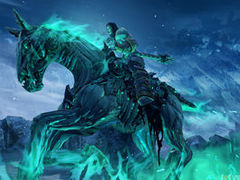
/https://oimg.videogamer.com/images/aa70/darksiders_2_21.jpg)
/https://oimg.videogamer.com/images/5dea/darksiders_2_28.jpg)
/https://oimg.videogamer.com/images/cd6f/darksiders_2_27.jpg)
